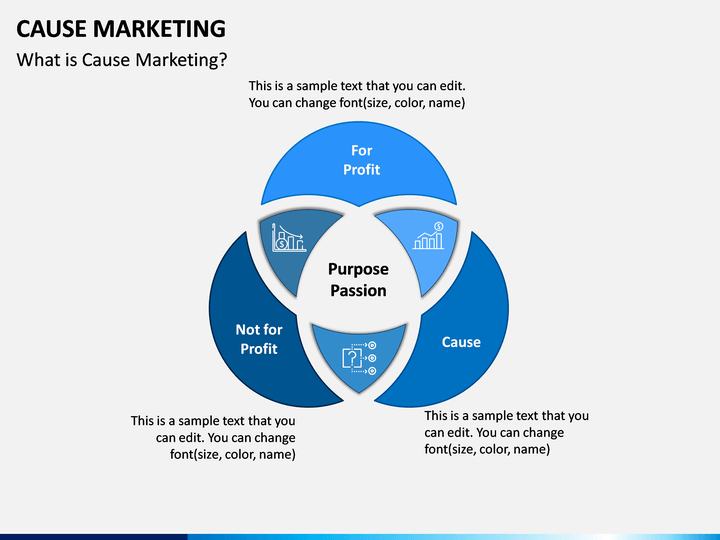Because of the paradigm change towards conservation and sustainability, it is no longer a routine business. We have witnessed an increase in cause-related marketing as a result of a desire to produce intrinsic worth in addition to bottom-line profitability. As consumers, workers, or shareholders expect more moral or responsible behaviors & goods, the marketing of those things is growing increasingly crucial.

What exactly is cause marketing?
Cause marketing is described as the combination of for-profit as well as non-profit to teach people about the issues that need to be addressed, what they are about, & how they can assist. Cause marketing is an effective way for retail brands to act as catalysts & important channels for wide public participation & support for an issue or organization.
Consumers nowadays have upped the bar & therefore are expecting companies to address the holes left by other organizations. Cause marketing allows organizations to engage with their intended audience via common values or a commitment to the collective benefit.
In essence, cause-related marketing is the establishment of a publicity strategy in support of a cause. In this case, a corporation attempts to improve society while concurrently promoting its products.
Cause-related marketing is a collaboration between a for-profit organization with a non-profit organization which aims in both to increase its profits and the welfare of the society.
The for-profit organization provides a portion of its earnings to the social organization via cause-related marketing. Cause marketing tactics, on the other hand, focus extensively on social & cultural issues such as unemployment, injustice, poverty, and even non-inclusion.
Nike's You Can't Stop Us commercial is a great example. The one-and-a-half-minute video honors female athletes. The brand here exemplifies sportsmanship & demonstrates how the spirit of the game transcends all borders, especially gender.

Build An Engaging App For Free
What Is the Process of Cause Marketing?
Customers want to buy from socially aware businesses and are generally willing to pay greater costs. Because marketing boosts a brand's reputation and, as a result, income.
Creating convincing campaigns, on the other hand, is a difficult task. Corporations don't anticipate what can backfire, particularly with so much rivalry.
A profitable marketing campaign necessitates much brainstorming. Marketing teams analyze the marketplace, plan a course of action, & collaborate with several other divisions to create an actionable strategy for action.
Finding the appropriate cause - Personal & corporate identity are the foundations of today's corporate operations. Each organization builds & preserves its own identity. Organizations must select causes that connect with the branded content to attract potential clients.
Combining monetary donations and non-monetary contributions - A monetary gift may go a long way towards assisting an organization. Companies, on the other hand, may provide certain products to a non-profit or generate consciousness about a cause to add more creativity to their marketing strategy while saving money. The objective is served via video mailing companies, volunteerism, or even through a film.
Execution - After determining the principles, firms maintain synchronization across their organization's limbs. They collaborate to develop a strategy and ensure that everyone is on board, whether it is their workers or the non-profit with which they have collaborated. They also create a successful public relations plan. Signboards, posts on social media as well as established alliances help get the word out to the correct individuals.
Getting digital - With increased web traffic, digital marketing is on the rise. Just 6% of youngsters believe in internet marketing, whereas 58% would rather buy from a cause-related company. Thus, providing value to digital marketing initiatives may significantly enhance a brand's income.
Being patient - No one achieves success immediately. The Coca-Cola Corporation has spent several years establishing market share. Organizations must labor continuously & patiently wait for rewards.
Marketing is a dynamic profession. Even above that, the arrangement leaves many blanks for marketers to complete. The best ad campaigns are the least inventive.

Making a Cause Marketing Campaign
Cause-related marketing is a well-balanced offer in which a for-profit corporation mixes social duty with commercial gains. A professional marketer and a decent squad are required to strike the right mix. To get started on your issue promotional campaign, take these steps:
1. Pick a cause in which you believe
When personnel have faith in the cause, an end-up marketing strategy is more effective. They are more inclined to put in additional effort, campaign again for a cause during their own time, or perhaps feel inspired to participate. Fundamentally, this form of campaign works best whenever your staff is enthusiastic about spreading the cause.
2. Join forces with a cause linked to your industry
Partnerships that seem to be beneficial to each of the concerned parties are the most advantageous. It makes perfect sense for your firm to link itself with a beneficial cause that will cause consumers to identify your business with that purpose long after the campaign is over.
If your firm develops & distributes shampoo and conditioner, for instance, you can consider working with an organization that gives wigs created from given hair to individuals that had lost hair because of cancer treatment. Your campaign objective may be to increase knowledge about wig programs & encourage additional hair contributions.
3. Donate your time, skills, or some other important commodity
Many businesses build marketing campaigns on acts that directly benefit the partner group, such as giving goods or services. While financial donations are beneficial to all NGOs, offering your skills or talents humanizes your organization. It may also establish strong links between your services as well as products with your philanthropic contributions.
4. Treat the collaboration as if it were a commercial deal
To ensure that your collaboration is mutually beneficial, work with representatives of the organization to establish the advantages for each side. Evaluate how well this strategy will help your brand’s reach. The group may decide to acknowledge your company's gift in an email campaign blast as well as on social network sites, or they could offer to include your logo as a prominent supporter on primary season materials. Work collaboratively to decide how you will leverage the group's brand within your promotional campaign, as well as the message that connects both groups.
5. Begin the marketing
Your marketing should motivate your target demographic to act. You may give actual meaning to any marketing initiative by committing the whole promotional campaign to the cause. By starting a discussion with your target audience, your company can help transform the world, not just its bottom line.

3 Advantages of Cause Marketing
Effective cause-related promotional strategies benefit both sides. Cause marketing can help to:
1. Enhance company image: A cause marketing strategy is a public affairs technique that assists a small or large firm in improving its brand reputation to enhance client retention. When a firm donates to a charitable organization, it may measure brand loyalty among its intended audience as just a marketing effectiveness statistic.
2. Enhance corporate responsibility: Companies create a cause marketing plan to increase corporate contributions & even become engaged with a worthwhile purpose while also accomplishing long-term goals such as conservation. To mitigate its carbon impact, a corporation, for instance, can collaborate with an environmentalist to plant one tree for every item sold.
3. Raise brand recognition for both sides: When a profit-making corporation works with a charity partnership, the aim is to raise brand recognition among both parties. For instance, the partners can send communications to each other's email marketing customers for collective benefit, promoting one another to their intended readers.

Is cause marketing successful?
Cause-related marketing is becoming a potential stream of rewards as the proportion of faith driven consumers grows…!



